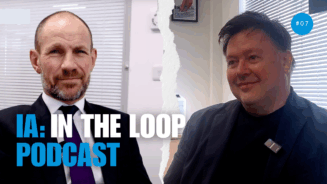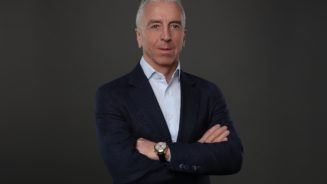The business is spread over 10-11 countries in Latin America, driven by the big expat community and the appeal of an Anglo-Saxon safe haven. A lot of what we do is linked to people’s desire to keep money safe.
What are your plans for Asia?
I am a big fan of Malaysia. We are exploring whether to have a Malaysian regional office. We’ve been in conversation with regulators and it is taking quite a long time while we wait to see how it pans out.
There has also been a lot of tax changes, and we are waiting to see how that affects our type of products. It would give us the ability to market to high net-worth Malaysians and via the trading bloc – Singapore, Malaysia, Thailand, the Philippines and Indonesia – and other nationals within that community over the longer term.
If we obtained a Labuan licence and marketed in Malaysia through locally-licensed advisers, we would have products that are much better than anything available through the domestic banking networks.
At the moment, most of our business in Asia is expat-driven from around the region and dotted around all the countries with administration done out of the Isle of Man.
There is still some administration done out of Hong Kong, where we have existing business and top-ups and where CMI also has a significant legacy book. Hong Kong also acts as a relationship centre for the region as a whole.
How about the Middle East?
In Dubai (the UAE) we are authorised to conduct business through our Representative Office licence from the Ministry of Economy, which allows us to market to the Securities and Commodities Authority (SCA) brokers.
We gravitate towards capital redemption business, so there is a scenario where our business has gone up since last year because the SCA brokers are giving us business as they can’t use those providers with an Insurance Authority (IA) licence.
In Qatar, advisers have to take more responsibility for products they recommend, and submit a recommended list of products to the regulator every year. To be on that list you have to meet technical requirements.
We are now fully compliant and legal in Qatar as of late last year, and business is doing well.
As for the Lebanon office, we are looking at relaunching our products there and marketing them to the indigenous population. High net-worth indigenous Lebanese particularly like life cover.
You revamped your regular savings product, Quantum, at the start of 2015. How has that gone?
Year to date we are 20% up over last year. Quantum is a better savings plan product than others in the market.
It has direct funds, traded daily at net asset value. It is more transparent, there are no credit card charges and charges are less.
People also like the service we give them. We are turning around new Quantum business within 24 to 48 hours if it is a clean application.
We have also been able to reduce the cost of life cover on new business for our LifePlan protection product.
There are hundreds of different premium connotations but we expect premiums on new LifePlan policies will now be 10% cheaper than before.
What is the outlook for business in the UK and elsewhere?
In the UK there has been no sign of change since the April pension reforms. Business is holding up reasonably well but I can’t claim to have seen a big spike or a big drop.
The single premium, offshore bond market in the UK is very competitive and tough to break into but our focus has been on platforms where we have seen modest growth into offshore bonds.
In Asia, the Middle East and Africa, single premium business is going well so far this year. There has been a bit of a price war among the other insurers but our sales have held up quite comfortably.
Regular savings bond sales are growing quickly, reflecting the trend of more internationally mobile individuals working around the world.
In general, the growth of the developing world economies bodes well for those selling in that space.




